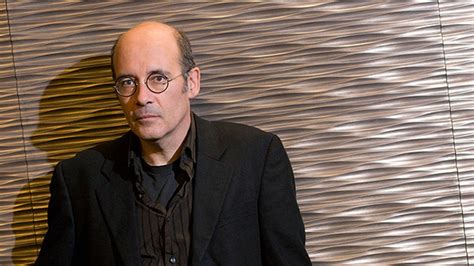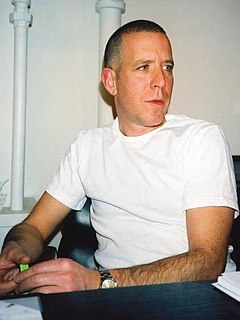A Quote by Luc Sante
All I know about 1970s New York City is that it's where I grew up, and you always have an umbilical connection to the time and place of your growing up. It was cheap, didn't have too many people in it, you could go to the movies or whatever on the spur of the moment, you could get by without working too much and especially without involving yourself in the corporate world.
Quote Topics
Related Quotes
I'm from New York. I grew up there. I grew up in Westchester County, the suburbs. For me, that was always the best of both worlds. I was super lucky to have a place where I could pretty much practice drums unperturbed. Obviously there were neighbor's complaints, but not very often, and I could get to the city easily by myself or with my parents.
A lot of acting is working with your own psyche in order to allow yourself to be open and reveal yourself. But then of course there's a healthy part of you that says, "Well, don't do that." You know, you're going to be in front of people. You could look foolish. You could get it wrong. You could be too big or too small or not realistic or whatever those things are. People might criticize you. There's all kinds of reasons not to be open. But you do want to be open.
Growing up in New York, there are a lot of tenement buildings and a lot of projects. You don't leave your projects too much. The laundry's there. The grocery store is there. Everything takes place right there. When I got knowledge of myself and thought about moving around the city, hip-hop was something that helped me.
I've had a relatively charmed life. I loved to be out in the city. New York was my town. I've had people come up to me and say, 'You're a great New Yorker. You've given your time and money to so many New York charities. You're a great supporter of the arts. I like some of your movies - and some of your movies suck, actually.'
I remember crying all the time. My major thing growing up was I couldn't fit in. Because I was from everywhere, I didn't have no buddies that I grew up with...Every time I had to go to a new apartment, I had to reinvent myself, myself. People think just because you born in the ghetto you gonna fit in. A little twist in your life and you don't fit in no matter what. If they push you out of the hood and the White people's world, that's criminal...Hell, I felt like my could be destroyed at any moment.
When I first moved here, I almost felt like I was obligated to hate L.A. as a New Yorker. I moved way too fast for this city. I walked everywhere, and I was lonely, too. It was a really hard time not knowing anybody, and you don't run into people the way you do in New York. You can go a week without seeing anyone.
The proliferation of support groups suggests to me that too many Americans are growing up in homes that do not contain a grandmother. A home without a grandmother is like an egg without salt.... The emotionally satisfying discussions that take place in Chronic Pain Outreach and Depression Resources are simply updated versions of the grandmotherly practice of hanging crepe. We could eliminate much of the isolation that support groups exist to fill and save the "traditional family" that everybody is so worried about if more couples took their aging parents to live with them.
The problem is that affirmative action could never really get at the issue of corporate power in the workplace, and so you ended up with the downsizing; you ended up with de-industrializing. You ended up with the marginalizing of working people and working poor people even while affirmative action was taking place, and a new black middle class was expanding.
I went to school in New York and grew up in and out of New York. I love it, and I miss it, and every time I go back, I think, 'Why am I in Germany?' I do know that my career is really important to me, and in Germany, they've always been so much more supportive than my previous engagements in the dance world.
In my mind, New York was the place where they had the underground rap shows and I could get in on some ciphers and just rap. This whole fantasy world I had created in my head about New York just from listening to the music my whole life, like, I'ma go up there and do that. But when I came up here, there was none of that, that scene was dead.






































